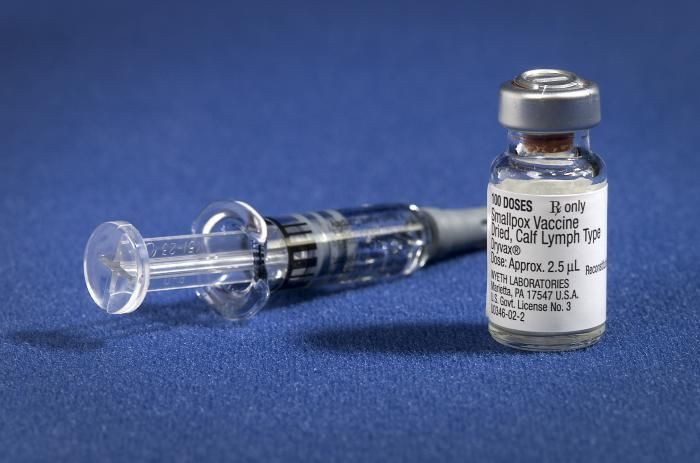California Vaccine Bill Angers Parents: 5 ‘Anti-Vaxxer’ Arguments That Aren’t Supported By Science

A bill promising to keep kids out of California classrooms for not being vaccinated is drawing the ire of parents who say requiring childhood immunizations is Uncle Sam at his worst. Many opponents of the bill, which lawmakers voted to advance Wednesday, have expressed their beliefs that such vaccinations are harmful, despite scientific evidence saying otherwise.
Several rallies have taken place across the state this month leading up to the bill’s consideration in the state Legislature. "Everybody’s rights shouldn’t be taken away,” Maria Ewell, who attended one such rally in San Diego on April 8, told KNSD-TV. “It's up to how you feel, your religious beliefs, your kid’s immune system.” Robert Kennedy Jr., who recently appeared at a Sacramento screening of the documentary film “Trace Amounts,” which links vaccines to autism, likened the number of children he said have been injured by vaccines to the Holocaust -- a comment for which he later apologized.
The debate over vaccinations came in the wake of a measles outbreak linked to the Disneyland theme park, near Los Angeles, which sickened almost 200 people across 19 states between December 2014 and February 2015. The outbreak put a spotlight on California communities such as Marin County, near San Francisco, which have high rates of parents choosing not to vaccinate their children. The state in general has one of the highest rates of vaccine exemptions -- parents opting not to vaccinate their children because of personal or religious beliefs -- in the country.
Senate Bill 277, introduced earlier this year, would bar students not vaccinated against diseases like measles and whooping cough from attending public or private schools. However, the bill would allow students not vaccinated to be home-schooled in groups with other nonvaccinated children. After Wednesday’s vote, the bill will move on to the Senate Judiciary Committee for consideration before going to Democratic Gov. Jerry Brown for signing. The governor "believes that vaccinations are profoundly important and a major public health benefit and any bill that reaches his desk will be closely considered,” a spokesman for his office said.
Critics pulled no punches when it came to outing the lawmakers behind the bill. Images appeared online comparing the bill’s backer, Democratic state Sen. Richard Pan, who is also a pediatrician, to Adolf Hitler. Some parents have even threatened to pull their kids out of school if the bill passes in an attempt to divert public funding. "Unfortunately, there is a subsegment of the group that seems to want to engage in vitriol and intimidation and bullying in order to get their way," Pan said, as the Associated Press reported.
If the bill becomes law, California would become the third state -- behind Mississippi and West Virginia -- to deny parents and students vaccine exemptions.
Despite parents’ fears about the safety of vaccines, medical experts say immunizations are harmless, effective, and have prevented millions of deaths every year. Here are five arguments so-called anti-vaxxers make that science doesn't support:
1. Vaccines cause autism. The misconception that vaccines cause autism has circulated on health blogs and in Internet communities for more than a decade, even though the original study that argued the link has since been debunked. A study published Tuesday in the Journal of the American Medical Association looked at more than 95,000 children and found that “there was no harmful association between the receipt of the [measles, mumps and rubella] vaccine and the development of an autism spectrum disorder.”
2. Vaccines contain mercury that can poison the body. Until recently, most vaccines contained trace amounts of a mercury-containing organic compound called thimerosal that acts as a preservative. Thimerosal has been the only source of mercury in vaccines and was present at such low levels as to not be considered harmful. Still, as an added precaution, in 2001, the Food and Drug Administration ordered thimerosal to be removed from all childhood vaccines.
3. Measles isn’t all that bad. Measles has the potential to be a very serious illness. The highly contagious respiratory disease causes inflammation of the brain in roughly 1 in every 1,000 children who get it, which can lead to permanent brain damage. Twenty-eight percent of children under 5 years old who get measles have to be treated in a hospital, the Centers for Disease Control and Prevention say.
4. Many children are injured by vaccines. There is no scientific evidence to support this claim.
5. There’s no guarantee that vaccines work. Vaccines have vastly reduced the number of people infected by some of the worst diseases in history, including polio and smallpox. Getting vaccinated greatly reduces a person’s chance of getting sick. The vaccine for measles, mumps and rubella, for instance, is 99.7 percent effective in people who receive the recommended two doses.
© Copyright IBTimes 2024. All rights reserved.






















